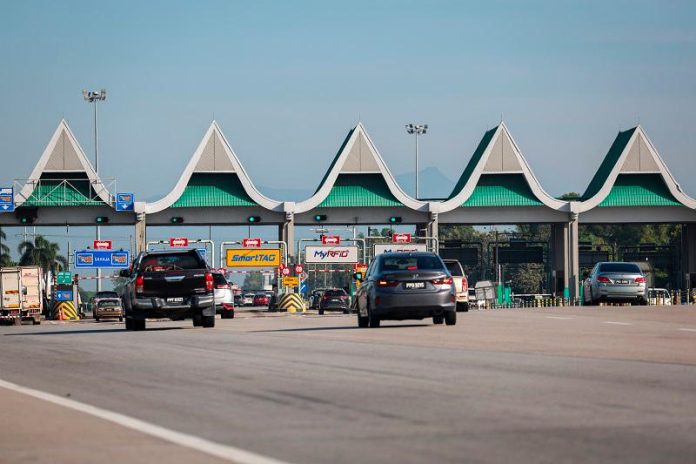KUALA LUMPUR: The government’s decision to end toll-free travel during festive seasons and to introduce a ‘more targeted approach’ is a reasonable move as the toll waivers only benefit a portion of households that use the highways during that time, according to analysts.
Professor Emeritus Dr Barjoyai Bardai, an economist at Universiti Tun Abdul Razak (UNIRAZAK), said that some households, especially those who do not travel during festive seasons, clearly do not gain anything from the festive season toll waivers.
“If the objective is to help improve the well-being of all households, the government needs to find other methods. People who neither go on holidays nor use the highways during the festive seasons do not gain any benefit from toll waivers,” he said when contacted by Bernama today.
Describing the decision as part of fiscal reform, Barjoyai said the government spends tens of millions of ringgit every festive season on the toll-free travel provision.
“We have too many festivals, and the total amount (from toll waivers) can reach hundreds of millions each year. This money could be better utilised for other programmes, such as expanding the Menu Rahmah initiative, which is very beneficial for the needy but is not available everywhere,” he added.
Barjoyai said, in principle, the decision to end toll-free travel during festive seasons also has the potential to foster a culture of saving and to encourage more effective and efficient spending among the public.
Yesterday, Works Minister Datuk Seri Alexander Nanta Linggi announced that the government is reviewing a more targeted approach to assist the public, as a replacement for the toll waivers during festive seasons.
Deputy Prime Minister Datuk Seri Dr Ahmad Zahid Hamidi explained that the provision of toll-free travel during festive seasons does not solve traffic congestion on highways, and the government still has to reimburse highway concessionaires more than RM35 million a day when toll exemptions were given.
A road safety and sustainable transport activist, Shahrim Tamrin, also hailed the government’s decision, describing the toll waivers for balik kampung exodus during festive seasons, which is already a peak period, as akin to “throwing fuel onto a fire”.
He said this is because toll waivers defeat transport sustainability and efficient traffic management, while at the same time, contributing to severe congestion on highways and federal or state roads.
“Due to the heavy traffic on the highways, it usually spills over onto artery and secondary roads, often causing severe traffic congestion in major towns, as well as rural areas,” he said in a statement today.
Shahrim, the former board member of the Malaysian Institute of Road Safety Research (MIROS), said that toll-free travel not only increased traffic congestion and higher fuel consumption but also contributed to increased carbon dioxide emissions and outdoor air pollution.
He said that, according to research, road transport contributed to more than 70 per cent of air pollution in urban areas and was the second-largest contributor to carbon dioxide emissions in Malaysia, accounting for 21 per cent in 2016.
Hence, for the greater benefit of the Malaysian public, Shahrim said that the RM540 million of taxpayers’ money spent on toll-free days during festive seasons over the past three years should be redirected to benefit those who use public transportation.
“With this taxpayers’ money, the government should encourage express bus services or chartered buses, as well as rail services, to offer e-ticket vouchers or discounted fares,” he said.
Additionally, he proposed that the government implement targeted subsidies for motorcyclists who require safe travel, as well as for travelers to Sabah and Sarawak and those heading to the north, south, and east of Peninsular Malaysia, especially for low-income groups and students of higher learning institutions.








